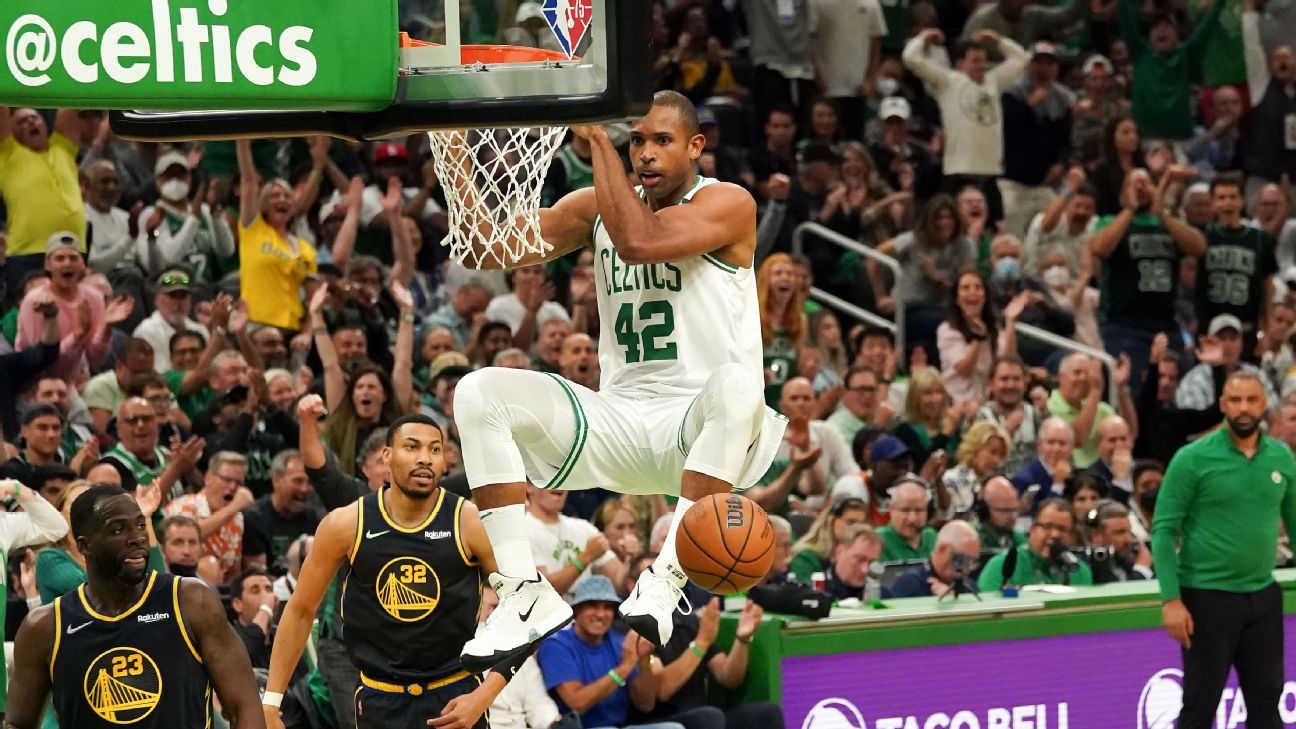
For all the celebration of skill and small ball in recent years, the NBA still rewards size and quickness at big moments. In the first Finals game in TD Garden since 2010, the Boston Celtics used their speed, length and physical superiority to bury the Golden State Warriors 116-100 in Game 3 to take a 2-1 series lead.
The Celtics have built their championship aspirations on the strength of their top-flight defense and the explosiveness of Jayson Tatum and Jaylen Brown, their pair of talented attackers. Both the Celtics’ defense and their wing tandem saw mixed results in San Francisco, where the teams split the first two games. But on Wednesday, Boston’s D showed off its versatility while Brown and Tatum turned in mature, heady performances that seized control of the game in the first half.
Over his first six NBA seasons, Brown has traditionally generated many of his opportunities in the flow rather than on set playcalls. In Game 3, he asserted himself as an initiator in the Celtics’ half-court game. Brown attacked relentlessly with assertive drives to the basket against the Warriors’ limited rim protection. When he encountered help defenders, he moved the ball crisply. When the Warriors’ defensive rotations opened up quality looks from beyond the arc in the flow, Brown gladly took those too. Overall, he finished with 27 points, hitting 9 of his 16 field goal attempts (including 4-for-8 from beyond the arc) and going 5-for-6 from the stripe.
2 Related
Tatum, who averaged 20 points but on less than 30% shooting from the field in the first two Finals games, didn’t produce his most dynamic or efficient effort (he scored 26 points overall on 9-for-23 shooting on Wednesday) but thrived as a playmaker. Following Game 2, Celtics coach Ime Udoka attributed some of Tatum’s struggles to his inclination to hunt fouls. In Game 3, Tatum notched nine assists against only one turnover, largely by reading the Warriors’ defense and finding teammates promptly with smart crosscourt passes and kickouts.
For all of their advantages inside, the Celtics consigned themselves to the perimeter and midrange in Game 2, attempting only six shots at the rim. In Game 3, Boston had attempted 14 shots at the rim by halftime, along with drawing four shooting fouls, with Brown leading the attack. Those forays into the paint greased the Celtics’ drive-and-kick game. While the Celtics didn’t see the sheer volume of 3-point attempts they did in San Francisco, they still generated a healthy 35 looks from beyond the arc, converting 37.1%. Boston also finished with a 52-26 edge in points in the paint.
For the Warriors, who’ve been eager to see Klay Thompson return to form, the loss is particularly bitter. Thompson scored 25 points on 17 attempts, one of his better postseason efforts — but one that was squandered. The Warriors turned the ball over 17 times and, even more devastating, were crushed on their defensive glass, yielding 15 offensive rebounds to Boston. Golden State likes to call these two columns the “possession battle,” and it was one they lost decisively.
Throughout their first postseason chase in three years, the Warriors have emphasized they’re a different squad than the one that won three titles in five Finals appearances. In Game 3, that was more apparent than it has been during their current title run. This Warriors team is still a work in progress, and for all of their collective basketball brilliance, there’s some work to be done.
